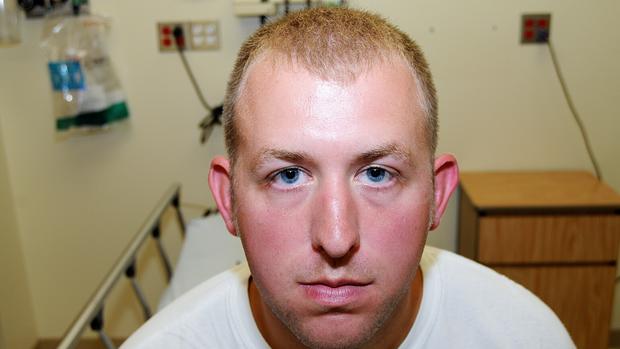"Subjective fear": What drove Ferguson grand jury's decision?
On September 16th, Officer Darren Wilson told the grand jury what happened after he fired shots at Michael Brown.
He said: "I'm backpedaling pretty good because I know if he reaches me, he'll kill me. And he started to lean forward as he got that close, like he was going to tackle me, just go right through me. I look down, I remember looking at my sights and firing. All I see is his head, and that's what I shot."
Now mounds of evidence presented to the grand jury are available to the public after their decision to reject charges against Officer Wilson. It includes his testimony and pictures of him in the hospital just after the confrontation.
"The absence of an indictment comes where we all began talking about this story many months ago, and that has to do with the physical evidence, or what we call forensic evidence," CBS News legal analyst Rikki Klieman said on "CBS This Morning." "The forensic evidence did not lie."
Klieman stressed that it's important for the public and juries to understand that while people can fabricate a story, physical evidence is surefire. She noted that as the prosecutor outlined the evidence, he spoke about people who retracted claims that they were eyewitnesses, accounts that Officer Wilson shot Michael Brown multiple times in the back and even that he stood over Brown as he allegedly did so.
"And of course when the autopsy leaked, then they changed their testimony," Klieman said. "What [the prosecutor] said was at this grand jury, listening for 25 days of testimony, 60 witnesses and 70 hours, that the only thing that could really come true for these jurors in making this decision was whose evidence matched the physical evidence."
One aspect of Monday night's events that did surprise Klieman was how fast the grand jury information was released to the public and how detailed the information was. She said the prosecutor made the decision to release the documents without a court order.
"One of the things we learned from this information, for the very first time by the way, is that we can see the four hours of Officer Wilson's testimony," Klieman said. "And in certain odd ways, it may have been much better if we had learned about Officer Wilson's story, not his testimony but his story, early on, that perhaps it might have diffused some of the violence."
She pointed out that in this case, the public only heard one side of the story.
"Officer Wilson's story, according to the prosecutor, matches the physical evidence much more than many of the eyewitnesses' stories," Klieman said. "And one of the things about Officer Wilson when he does testify, which he didn't have to do, he chose to do, is that ... he talks about his subjective fear ... and he is terrified by virtue of his own words. Clearly the grand jury chose to believe him."
The case will continue in the form of a Justice Department investigation and Klieman expects the Brown family to file a wrongful death civil suit against Officer Wilson.
